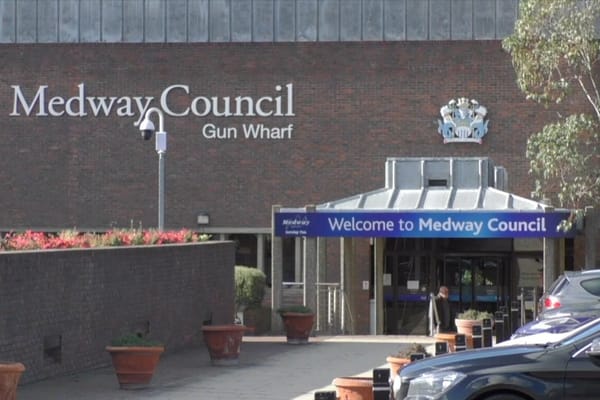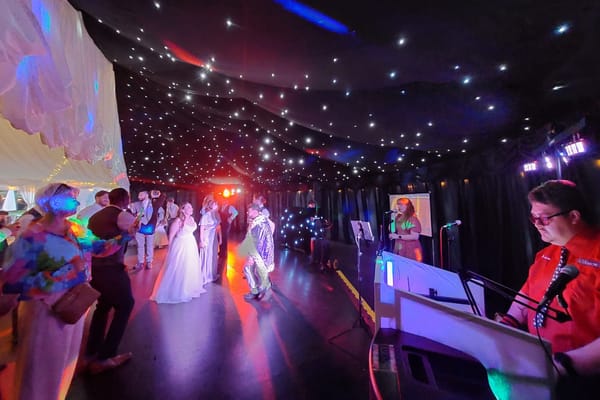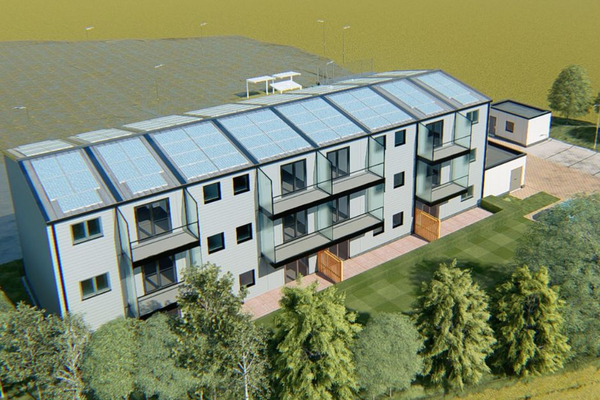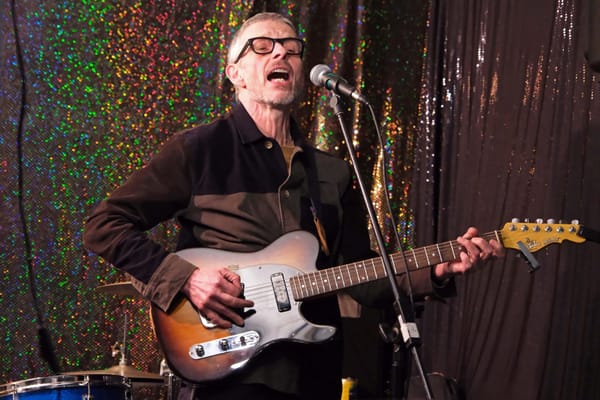“The times I've been accused of being drunk is unbelievable”
What Steven asked Phil Bungay and Martin Nagler of the Medway Neurological Network
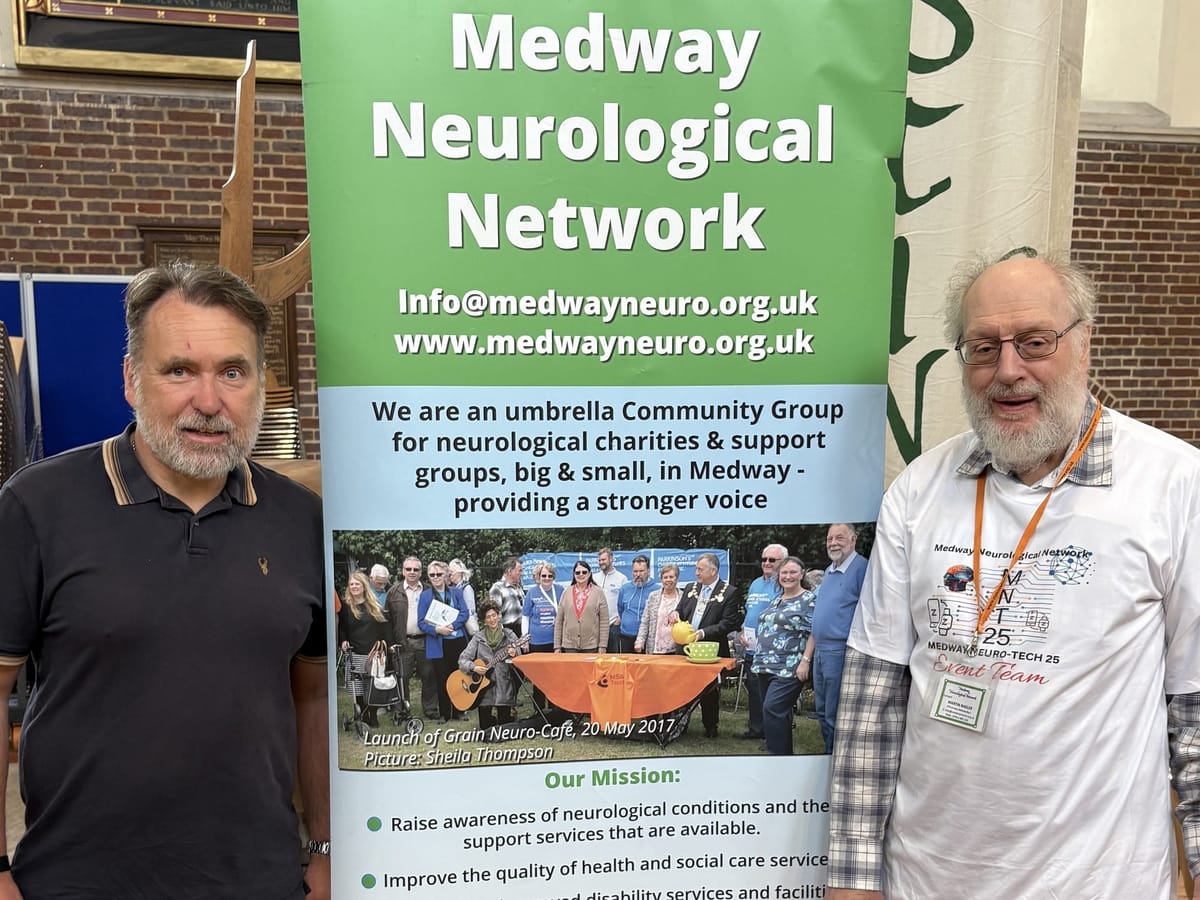
The Medway Neurological Network is a community support group for charities and groups for those with neurological conditions. Steven sat down with Phil Bungay and Martin Nagler from the group, ahead of their Neuro-Tech 25 event, at St Augustine’s Church in Gillingham, which regularly hosts Medway Neuro Café, an opportunity for those living with neurological conditions, as well as carers, to meet for information, support and friendship. They talk about their respective conditions, the upcoming conference, and the work of the network.
Note: Phil has speech difficulties due to his Parkinson’s, and some information was provided in written format later. Those sections are italicised below.

Phil is showing me a device on the back of his phone. Relatively simple in nature, pushing down on the squares, it supports him with his speech.
Martin: We heard about it. What they had, they had bricks on the wall. So, you're looking for walls somewhere, you point to a brick. But one of the designer’s sons came up with the idea of having little bricks on the phone.
Phil: My son William… He was really willing. This was the best thing. I was thinking, ‘Oh, I can't.’
That's incredible!
Martin: It is incredible. Before Phil developed the speech problem, he was the most talkative person in the world. He's got all these thoughts and ideas. It must be the height of frustration.
What does this help with?
Phil: This… helps with control.
Martin: It's like a lot of these things, you never know how you are going to respond to it. Some things help some people very much. Through trial and error, see what works for you.
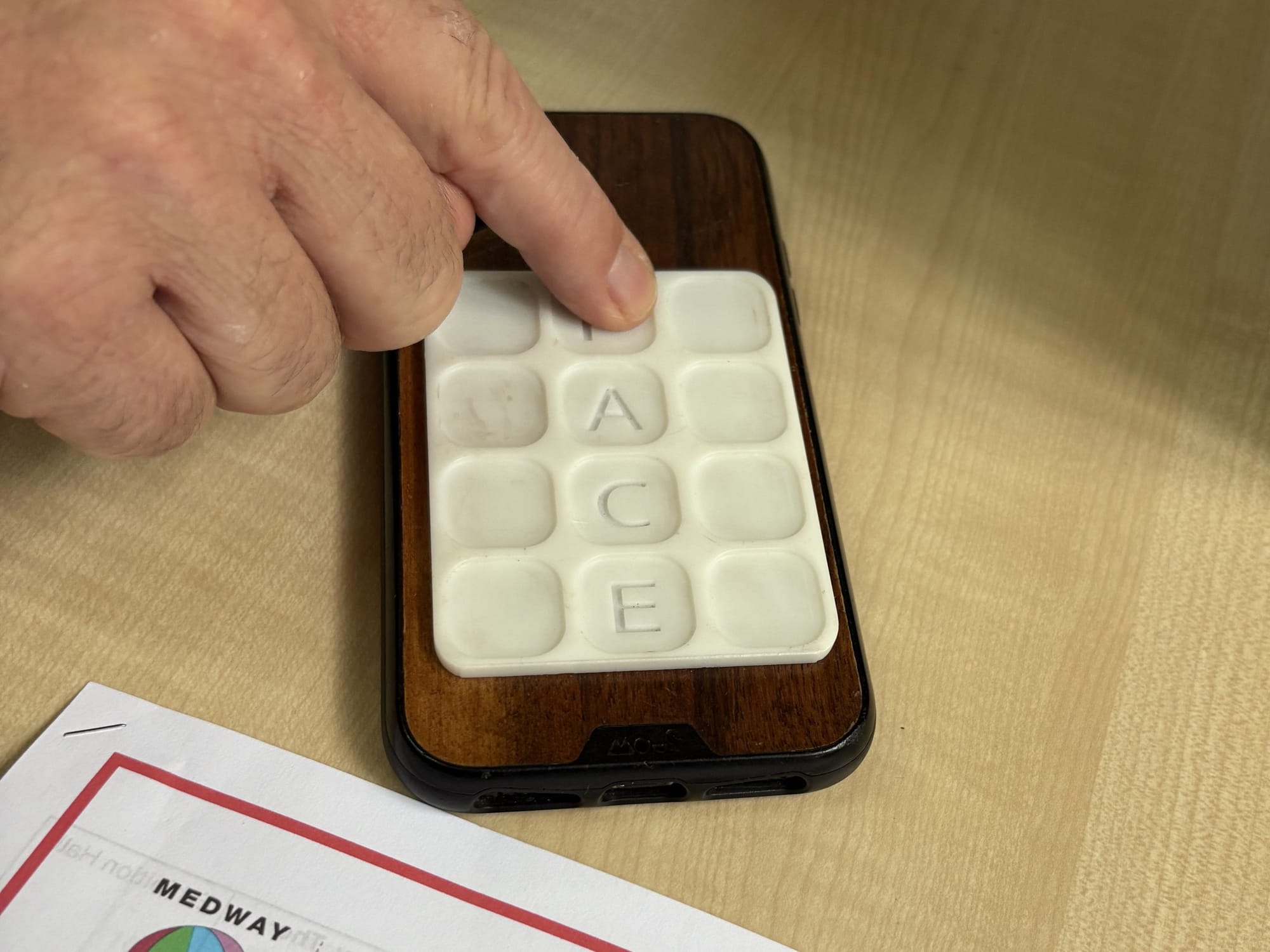
Let's talk about Neuro-Tech 25. When is that?
Martin: That is Thursday the 4th of September, at the Pilkington Building, Medway Universities.
How long have you been running the Neuro-Tech?
Phil: It is our 10th Birthday.
Martin: The Medway Neurological Network, it’s our 10th anniversary. Phil and I met at Medway Hospital at the neurology department in 2015. At that time, I was chair of the Medway Multiple Sclerosis Society. My main condition is Allied Multiple Sclerosis, but not actually Multiple Sclerosis. My lesion is in my spine, rather than my brain. The closest thing that was an organisation locally was the MS Society, and at that time, they accepted people with allied conditions. They're not so obliging now. I volunteered, and I soon ended up being chair.
One of the things we wanted to do was to engage with other people in the neurological community, particularly looking for other people that needed MS support. We negotiated with the hospital to have a small information stand in their waiting room once a month. That's when Phil came in and we got talking. The first thing Phil said, “Oh, well, if you're here, we'd like a stall as well." (laughs)
Phil: Going back a bit, I was at the time the co-ordinator of the UK (Parkinson’s) Working Age Group in Medway. We are quite fortunate that we have two proper groups. One is the branch, for people further along the journey, and the Working Age Group for people of working age.
Martin: We met in our different roles, but as we talked more about what we were doing for our organisations, it became obvious very quickly that there was so much overlap. Although we were saying MS or Parkinson’s, we were looking for the same sort of thing, to improve the services and all that sort of thing. And we were both aware of the national Neurological Alliance. It twigged, I'm not quite sure how, but why don't we have a local Neurological Alliance and engage with all the other groups providing support? One of the first people was my work colleague, Linda Nicolaides, because we were looking for a secretary. When we first started off, we were going to be co-chairs and find a secretary and a treasurer, but we couldn't find a treasurer. I ended up as treasurer (laughs).
Phil had been leading the alliance up until this year, when Linda's just taken over at our last AGM to be chair. That's our beginnings, really.
We will putting this interview out in August and let people know about the conference.
Martin: The first idea we had would be that it's for people living with a neurological condition to showcase technologies and say, ‘They're available, so this might help you.’ That was really the main aim. It still is the main aim, but what we quickly found was there was a lot of interest from the professionals, occupational therapists, around here, with various things being demonstrated. It looks as though it might be 50-50ish between the people that have the condition coming in, and those who are professionals looking to provide that technology. Of course, we've got a couple of speakers on AI, and we're thinking that AI technologies almost certainly will transform the way the services are provided.
Phil: I’ve got this... (Indicates the device on the back of his phone)
That's extraordinary.
Martin: That is very low tech.
Phil: I got… whilst in physical therapy… I think it was at King's College Hospital. They were… talking about all sorts of technical things, work-based. I started developing from the squares.
Martin: It really does work so well for you.
Phil: But… as Martin said, I do find my speech…. frustrating. (laughs) Because I used to be a talkative person.

